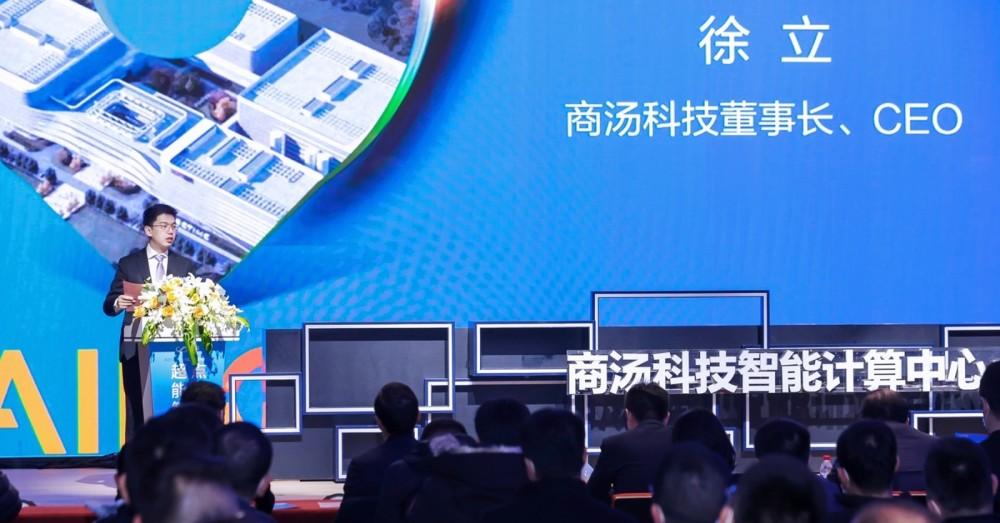
(Source: SenseTime official website)
The "first stock of artificial intelligence (AI)", which has attracted the attention of the capital market, ushered in the first financial report after listing.
On March 25, AI software company SenseTime (0020. HK) announced its financial results for the full year 2021.
According to the financial report, SenseTime's total revenue in 2021 was 4.7 billion yuan (RMB. The same below), an increase of 36.4% over 3.446 billion yuan in 2020; the annual loss continued to expand by 41.3% to 17.177 billion yuan, accounting for 365.4% of the total revenue; after deducting employee compensation incentives, listing expenses, financial fair value, etc., the adjusted net loss was 1.418 billion yuan, a loss increased by 61.5% year-on-year; and the gross profit margin reached 69.7%.
Specifically, the main source of SenseTime's revenue is customer order revenue based on senseCore, a general artificial intelligence infrastructure, which applies four scenarios: smart business, smart city, smart life, and smart car.
In the smart business sector, the revenue in 2021 was 1.958 billion yuan, accounting for 41.7% of the total revenue, compared with 1.485 billion yuan in 2020, the revenue has shrunk; but the number of customers has increased, increasing by 8.7% in 2021 to 922 customers, including more than 200 Fortune 500 companies and listed company customers, the average revenue amount of single customers increased by 21.3%, and the order field also paid more attention to vertical industry customers. Typical customers include state grid, China Southern Power Grid, Beijing-Shanghai high-speed rail, China Telecom, SoftBank Group, Alibaba Cloud and other industry leaders.
In the smart city (security) business segment, this part of the revenue in 2021 reached 2.142 billion yuan, an increase from 1.369 billion yuan in 2020, ranking as the largest source of revenue for SenseTime, accounting for 45.6%; the number of customers was 140, an increase of 48.9%, which was mainly due to the basic control of the new crown epidemic, and the number of cities in which SenseTime deployed SenseTime Ark products increased significantly last year, including 15 large cities with more than 10 million people such as Shanghai and Shenzhen.
In the smart life sector, last year's annual revenue reached 415 million yuan, accounting for 8.8%; the number of customers reached 257, which was mainly due to the transformation and upgrading of the business last year, the combination of AI technology and chips, sensors soft and hard, the group and the world's leading semiconductor companies (should be Qualcomm) cooperation research and development. At the end of 2021, SenseTime delivered four AI sensors to achieve a breakthrough of 0 to 1, and successfully landed on the head mobile phone manufacturer, providing privacy protection, mobile phone shooting functions, etc.
In the field of smart cars, SenseTime's revenue for the whole year of 2021 will be 184 million yuan, and the number of customers will be 34. Thanks to the launch of the "Shadow" intelligent car platform by SenseTime last year, the promotion of full-line productization and commercialization in intelligent driving, intelligent cockpit, vehicle-road collaboration, L4-level unmanned driving, and driverless minibuses, domestic mainstream car companies and some overseas car companies have become SenseTime's cooperative customers, and the cumulative number of intelligent driving and intelligent cockpit products has reached 23 million units, covering more than 60 models mass-produced in the next five years.
In the first quarter of 2022, SenseTime completed the organizational structure upgrade and established the Intelligent Vehicle Business Group to develop the intelligent automobile business with greater efforts; it also established the Digital Space Business Group, which fully integrates the advantages of AI perception, AR and MR technology, computing power and customer ecology, and is committed to building an industry-leading meta-universe empowerment platform, providing a variety of key technology engines to empower various industries to build a digital space.
In addition, research and development growth is the core lifeblood of AI technology companies like SenseTime. According to the financial report, in 2021, SenseTime spent 3.06 billion yuan on R&D, accounting for 65.1% of revenue; last year, the R & D staff increased by 1,500 to a total of 4,200 people, accounting for 70% of the total number of employees.
It is worth mentioning that by the end of 2021, SenseTime's investment loss reached 40.23 million, an increase from 6.05 million in 2020, which means that the external investment layout was expanded last year, and no cost return was required. Overall, however, SenseTime's cash flow remained solid, with net cash of $21.45 billion.
Overall, SenseTime's overall performance was better than market expectations, with a 30% increase in total revenue. However, SenseTime's losses are still serious, with losses before adjustment reaching 3.6 times of revenue, and adjusted losses widening by more than 60% year-on-year. The business structure has also changed, the government and enterprise orders are no longer single, and the revenue of the security sector has become the new main force.
Dr. Xu Li, co-founder, executive chairman of the board and chief executive officer of SenseTime, said that 2021 is the most important year for SenseTime's development since its establishment, with accelerated business growth, a series of major breakthroughs in research and development, and a solid foundation for future development. SenseTime has always believed that the advanced productivity represented by AI will help humanity have a better life. Looking to the future, SenseTime is full of confidence and expectations for the development of China's digital economy, and has the confidence to maintain a long-term competitive advantage.
As of the close of Hong Kong stocks on March 25, SenseTime-W closed at HK$6.30 per share, down 1.72%, with a total market capitalization of US$27 billion. It has fallen more than 50% from its post-listing high.
(This article was first published on titanium media App, author | Lin Zhijia)